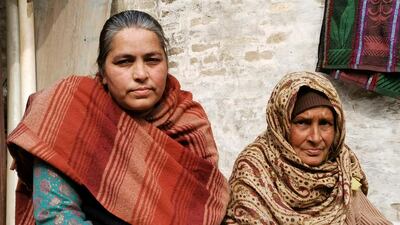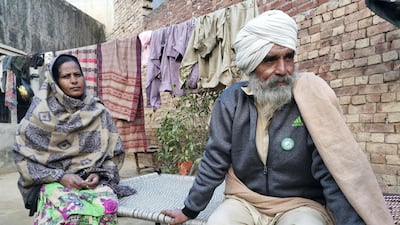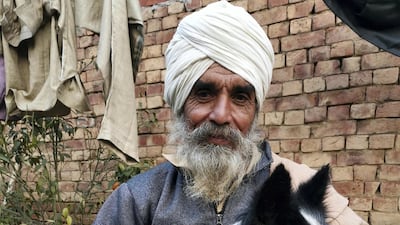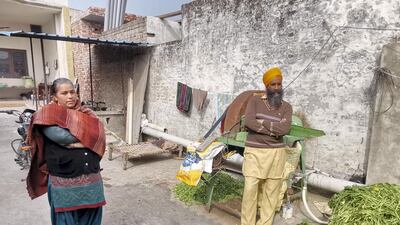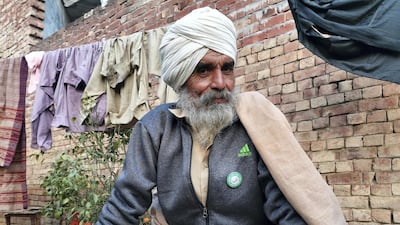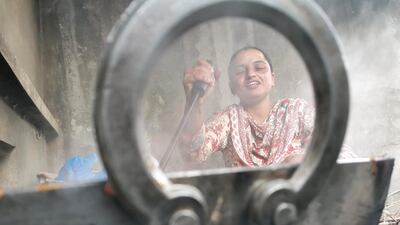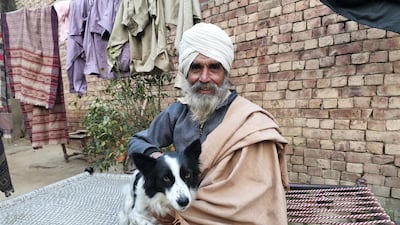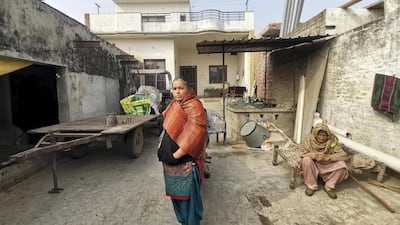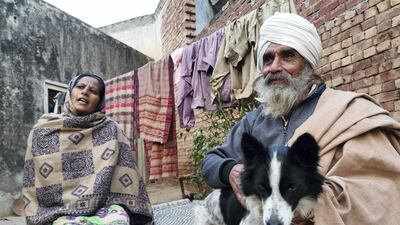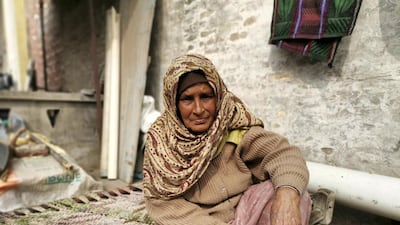In the frigid winter mornings of northern India, Amandeep Kaur rises before dawn, feeds and milks half a dozen buffaloes, cooks for her family, then heads out to check on the two-hectare wheat field next to their home.
Until nearly two months ago, Amandeep was oblivious to the arduous tasks involved in farming and livestock rearing.
But she has learnt fast since her husband Narpinder Singh left home in late November to join tens of thousands of farmers surrounding the Indian capital in protest against new agriculture laws that they say will destroy their livelihoods.
"He had just sown the wheat crop, and leaving for protests meant the responsibility of looking after the crop fell on me," Amandeep, 38, told The National at her two-storey home in Rauni, a small village in Ludhiana district of Punjab state.
“When he left, neither of us knew that he would be away this long. I was a little nervous initially but I quickly learnt the ropes.”
Nearly two months later, the farmers remain camped out in tent cities on major highways around New Delhi. Nine rounds of talks have failed to resolve their dispute with the government over three recent laws that remove agricultural markets from state control, allow contract farming and deregulate the storage and sale of food commodities, including cereals, pulses and oil.
The farmers – mainly from the states of Punjab and neighbouring Haryana, often called the breadbasket of India as they produce 60 per cent of the country's wheat – say that these laws will only benefit big businesses.
Amandeep often takes guidance from her husband in video calls during her daily trips to inspect the wheat field for pests, soil moisture and fertilisers. Before heading into the house, she checks on the vegetable crops growing on either side. She also finds time to supervise her two children’s online school classes while doing her regular household chores.
In between all these tasks, she collects green fodder from the nearby patch of land, chops it in a chaff cutter and feeds it to the cattle every six hours.
“There were problems … but I have managed to do everything. I wake up before sunrise and work the whole day but I have no complaints,” she said.
“I told him to not worry about the crop or the cattle and encouraged him to only return home victorious, no matter how long it takes."
Traditionally, the farmers' wives take care only of the household and do not work in the fields, but in absence of their husbands many have taken on the responsibility of looking after both. Friends, neighbours and relatives step in to help, while many villages have formed committees to co-ordinate such efforts.

At Balwinder Singh's farm, his septuagenarian mother Gurmeet Kaur has been feeding the four buffaloes while his wife Sukhvir Kaur, 40, manages the farm work with the help of her husband’s friend, also named Balwinder Singh.
Before he left for Delhi on his tractor on November 25, her son did everything, Ms Kaur, 75, told The National.
"I used to go to temple, pray and relax,” she said.
Sukhvir said she was sad about the long separation but was preparing to manage the crucial March-April harvest period on her own.
“The crops will be ready for harvest soon and with no end to protests, I am worried what will happen to our crops. But I will manage somehow,” Sukhvir said.
“It feels bad that he is not with us but the fight is important. I cannot ask him to return home because he is there for a cause."
At a farm a little distance away, Balbir Singh is back after 48 days at the Delhi protest campsite and is ecstatic to be back with wife, Kulwant, and dog Jacky.
But his return is a brief one. He plans to go back to the capital before India's Republic Day on January 26, when the farmers plan to intensify their agitation if their demands are not met.
Mr Singh, 65, is helping to run one of the dozens of community kitchens at the Singhu protest campsite – entrusting his two-hectare wheat farm, cattle and household to his wife.
“I feel wonderful there. I have come home to pack clothes and am going back soon,” he said.
“Whether the crop is ready or not, we will continue the protest because if the law is made, we will not only lose the crop but also our land.
"We knew the [farm] work would continue – I have left that to God and to my wife."
__________
